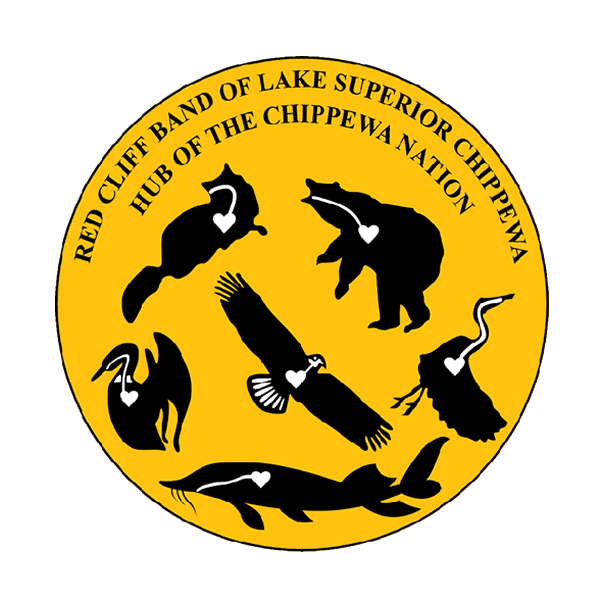Native American Heritage Month commemorated with first Indigenous road signs in Wisconsin

Boozhoo (hello in Ojibwe) and miigwech (thank you) for reading the First Nations Wisconsin newsletter.
November is Native American Heritage Month and one way state officials commemorated it was by installing the first Indigenous language Department of Transportation road signs in the land now known as Wisconsin.
The unveiling of the signs this month at Red Cliff in far northern Wisconsin was the culmination of negotiations between tribal and state officials that started in 2018.
The signs feature the Red Cliff Nation seal, informs motorists they are entering sovereign territory and includes the Ojibwe phrase, “Gaa-Miskwaabikaang,” the traditional name for the reservation, which means “the place where there is red rock cliffs.”
We’ll take a look at some of the interesting facts of the Red Cliff Ojibwe Nation.
Its reservation is on the shore of Lake Superior near the Apostle Islands in a region where recreational tourism and fishing are two of the major industries. Red Cliff Nation also operates a fishing company.
Frog Bay Tribal National Park is a 180-acre property on the Red Cliff Reservation and features a sandy beach and boardwalk trail. It is the first tribal national park within the U.S.
The largest of the Apostle Islands is Madeline Island, which is considered a kind of traditional capital for Ojibwe people, which are the largest tribe in North America numbering more than 320,000 people, about half of whom are in the U.S. while others are Canada.
A fictional book describing actual events surrounding the town of La Pointe on Madeline Island and the devastating effects of U.S. policy for Ojibwe people that I'd recommend reading is "Resisting Removal: The Sandy Lake Tragedy of 1850."
Red Cliff is one of six Ojibwe nations in northern Wisconsin.
Many Ojibwe still live on ancestral lands on Madeline Island, including renowned environmental activist Winona LaDuke.
Under U.S. and tribal treaty law, Ojibwe citizens have the right to hunt and fish off-reservation in millions of acres of ceded territory in exchange for the U.S. taking Ojibwe land.
This week’s newsletter features some of our coverage of Red Cliff, including it being the only Indigenous nation in Wisconsin to receive a share of a special grant from the U.S. Housing and Urban Development Department in 2019.
Tribal officials say funding for housing on reservations has lagged for decades, but Red Cliff officials are appreciative of the grant that was used for affordable housing for tribal citizens this fall.
Red Cliff officials also are working with the state to expand broadband access on rural reservations.
Red Cliff citizen Curtis Basina opened the first Native American-owned distillery on the reservation in 2017.
And Chelsey Lewis with the Milwaukee Journal Sentinel takes us on a tour of the Apostle Islands with Red Cliff tribal citizen Travis Barningham.
If you like this newsletter, please invite a friend to subscribe to it. And if you like our coverage, please consider subscribing to support our journalism.
And if you have tips or suggestions for this newsletter, please email me at fvaisvilas@gannett.com.
About me
I'm Frank Vaisvilas, a Report For America corps member based at the Green Bay Press-Gazette covering Native American issues in Wisconsin. You can reach me at 920-228-0437 or fvaisvilas@gannett.com, or on Twitter at @vaisvilas_frank. Please consider supporting journalism that informs our democracy with a tax-deductible gift to this reporting effort at GreenBayPressGazette.com/RFA.
This article originally appeared on Green Bay Press-Gazette: Indigenous road signs top Native American Heritage Month in Wisconsin
